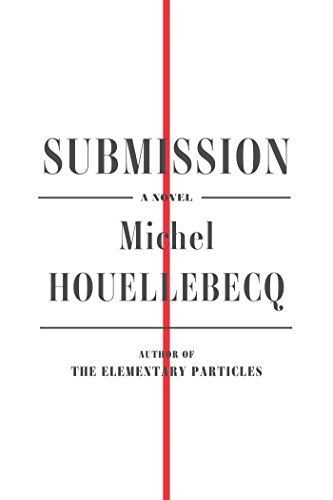
Submission A Novel
A controversial, intelligent, and mordantly funny new novel from France's most famous living literary figure. It's 2022. François is bored. He's a middle-aged lecturer at the New Sorbonne University and an expert on J. K. Huysmans, the famous nineteenth-century Decadent author. But François's own decadence is considerably smaller in scale. He sleeps with his students, eats microwave dinners, rereads Huysmans, queues up YouPorn. Meanwhile, it's election season. And although Francois feels "about as political as a bath towel," things are getting pretty interesting. In an alliance with the Socialists, France's new Islamic party sweeps to power. Islamic law comes into force. Women are veiled, polygamy is encouraged, and François is offered an irresistible academic advancement--on the condition that he convert to Islam. Adam Gopnik in The New Yorker has said of Submission that "Houellebecq is not merely a satirist but--more unusually--a sincere satirist, genuinely saddened by the absurdities of history and the madnesses of mankind." Michel Houellebecq's new book may be satirical and melancholic, but it is also hilarious, a comic masterpiece by one of France's great novelists.
Reviews
Sarah E@booksgalore
Katie Chua@kchua
Donald@riversofeurope
Diana Platgalve@dianaplatgalve
Ronas K@chesmez
Pim Van@pim
Artas Bartas@artas
M@bmelville222
Francis Wilson@espiceyboi
Philipp@philipp
Landen Angeline@landen
Sean Wilson@seantwilson
Özgür Özer@zgrzr
Nicholas Barnard@coldfruits
M. Marques@shvvffle
Stephen Campbell@stephencampbll
Marcus Rosen@hummingbird
Mrigank@mrigoo
Neil Murray@neilswmurray
Zaynab Waqas@unicorn_blood
Toby Fehily@tobyfehily
Alexander Lobov@alexlobov
Evan Huang@eh04
Gustav Vallin@gvallin
Highlights
N@smaragdinemondegreen
Page 226
N@smaragdinemondegreen
Page 222
N@smaragdinemondegreen
Page 214
N@smaragdinemondegreen
Page 177
N@smaragdinemondegreen
Page 175
N@smaragdinemondegreen
Page 143
N@smaragdinemondegreen
Page 138
N@smaragdinemondegreen
Page 114
N@smaragdinemondegreen
Page 111
N@smaragdinemondegreen
Page 109
N@smaragdinemondegreen
Page 105
N@smaragdinemondegreen
Page 103
N@smaragdinemondegreen
Page 98
N@smaragdinemondegreen
Page 46
N@smaragdinemondegreen
Page 27
N@smaragdinemondegreen
Page 17